17/12/2018
- The technology sector is calling for an educational project that
the training needs that the technological revolution and the new technologies have brought about.
digital demand.
- Only among the companies belonging to the DigitalES employers’ association
there are 10,000 unfilled jobs due to lack of qualifications.
- The employers’ association insists on the need to introduce
subjects aimed at increasing digital competencies from an early age.
and to reform and modernize vocational training in order to improve the quality of early
reduce youth unemployment.
Madrid, December 17, 2018.- The technology employers’ association DigitalES.
this morning assessed the announcement by the Council of Ministers of the draft bill of the
of the Ministry of Education that modifies the LOE and repeals the Lomce. The
association of the world’s leading technology companies has
criticized the fact that the bill does not include one of the most important issues in the
and the economy of the future: training for the future and for the future.
digitization.
The government announced in September
100 million this year to support the incorporation of knowledge,
technology and innovation to the digitalization of SMEs. One month later, in
October, it announced the start-up of 27 new transformation offices
digital with the presence of all the autonomous communities. According to the director
DigitalES general manager, Alicia Richart, “in spite of the announcements and
presentations being made to advance Spain’s digital transformation
we discovered that, with this text, one of the fundamental pieces for achieving
digital transformation, such as education, remains stuck in its
modernization”.
“Digitizing a country is no easy task,
should begin at the earliest ages and means, to tell, to tell, to explain,
practice and experiment with technology,” Richart points out, “that’s why we are
We consider the absence of subjects such as Programming to be a big mistake.
as an independent area at this stage of education.
primary”.
According to DigitalES, at these ages it is
when the process of learning any language is not only simpler, but also easier.
which also helps to foster STEM vocations, where both Spain and the United States have
Europe are lagging behind. By 2020, the demand for STEM profiles (initial
to designate the academic disciplines of science, technology, engineering and
mathematics) will be 14 % in Europe and 10 % in Spain. And yet, the
The rate of enrollment in these careers has dropped by up to 40% in the last few years.
years.
In 10 years, the new generations
will constitute the most important segment of the planet’s population, making up the largest
75% of the total workforce. For them, technology will be a
essential tool to relate to the environment around them. “From
the importance of including technological and digital literacy in all of
curricular and school subjects,” the employers’ association points out.
Another major absentee from this preliminary project
of the law is vocational training, even though only the companies
at DigitalES have at least 10,000 jobs that are not covered by the
lack of qualification. “In spite of the fact that last November 13 and under
the slogan: +FUTURE + PROGRESS + VOCATIONAL TRAINING this Government presented a
plan to modernize vocational training, none of which is envisaged in this plan.
educational reform proposal, a complete contradiction,” adds Alicia Richart.
“There is not even a mention of dual vocational training, an urgent need in our
society to boost youth unemployment, where we have the highest unemployment rate in the world.
highest in Europe after Greece.










